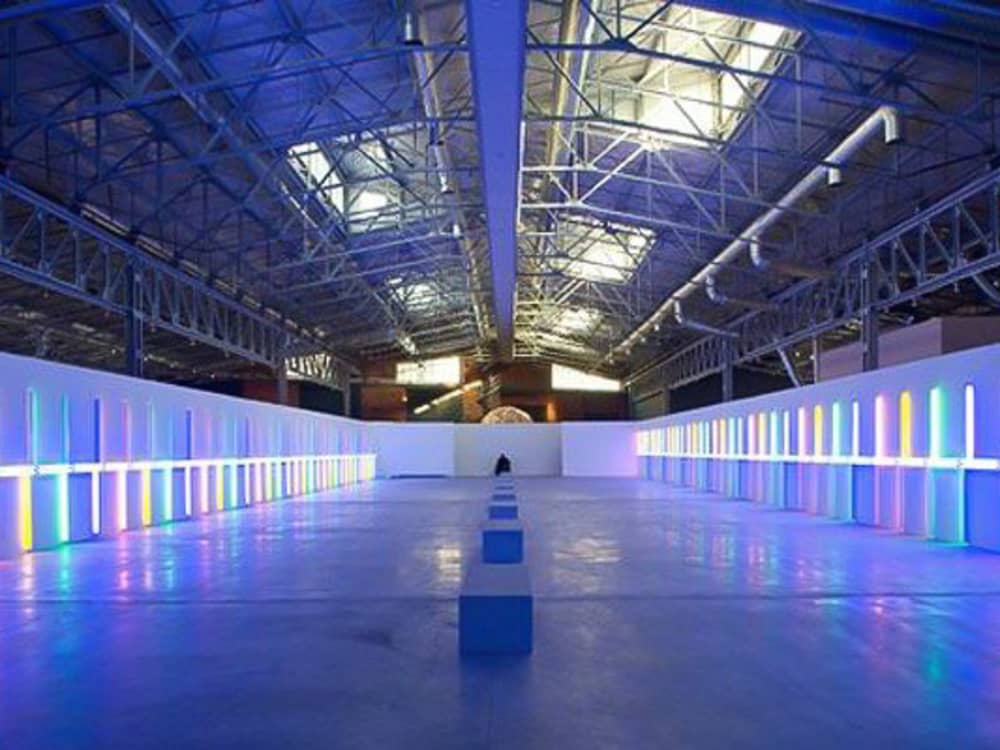Five questions
Photographer with cancer in his eye sees the world in a different light: BehindKeith Carter's lens
 Star Cape, 2011Photo by Keith Carter
Star Cape, 2011Photo by Keith Carter Zebras, 2011Photo by Keith Carter
Zebras, 2011Photo by Keith Carter Archer, 2011Photo by Keith Carter
Archer, 2011Photo by Keith Carter Habitat, 2011Photo by Keith Carter
Habitat, 2011Photo by Keith Carter
To say that I'm an admirer of Beaumont-based photographer Keith Carter's work would be an understatement.
As a child, Carter's books were a constant presence on my parents' coffee table; stylized though they were, his photographs depicted a life I knew well, based in the beautiful, bizarre world that is deep Southeast Texas.
Filter that through the modified lens of his Hasselblad, print it in distilled black and white, and the result is something indescribably magical and very real.
CultureMap spoke with Carter in anticipation of his exhibition, Imagining Paradise, which opens with Dornith Doherty's Cache at McMurtrey Gallery on Saturday night, in conjunction with the FotoFest Biennial.
CultureMap: Describe how you got your start with photography.
Keith Carter: I grew up around photography. My mother was a photographer of children and families, and she supported a single-parent household with that, in a time when it wasn't so easy or glamorous.
Some of my earliest memories are in the apartment I grew up in as a child, when at night my mother turned the kitchen into a darkroom, standing on a chair in the glowing orange room, watching the pictures develop.
CM: How did growing up in Beaumont influence your work? How has it maintained it?
KC: The area formed my early work, in particular. The East Texas border area has little to do with the rest of the state. I've always loved Southern literature. There's a dark, gothic, peculiar, rural sensibility that's found in the literature, especially.
In the early days of my career, I wanted to portray my place as some sort of exotic land rather than a pastoral place. I focused on the folklore, the people and the animals . . . and a larger view of this culture — white Anglo-Saxon protestants and Southern blacks, the Hispanic mythology and the Vietnamese industry, rednecks and Creoles.
This gumbo culture, I found it stimulating to work with that. As the years went by, I began to branch out.
CM: What led to that shift, and what has that looked like?
KC: In my adult life, I have always drawn from the real world . . . I look for lovely askew moments. Today, I try to make images that are externally objective, but internally boundless. With my current work, Imagining Paradise, I'm destroying what's always been most precious to me, what I've always believed in — my negatives — with the hope of creating something new. The reason is that my vision has constricted, and I have a new view of the world.
I use arcane chemicals, calligraphy pens, toothbrushes and knives on the negatives. I'm interested in the pre-history of photography, when images were dark, murky, muddled and spotty, when the the art of photography was more capricious. This is my way of paying homage to photography, and the oddities of my vision.
CM: Can you describe what exactly led to these changes in your vision?
KC: About three years ago, I was diagnosed with cancer in my left eye. Ocular melanoma. The cancer and the subsequent radiation pretty much obliterated the vision in my left eye.
If I close my good eye, my world looks like those old photos — dark and murky and muddled. When I look through only my good eye, the world looks flat, like a medieval painting. There's no sense of depth. It's really fascinating — my vision has constricted, but my world is enlarged. I think of it as a work in progress.
CM: And this process of destroying negatives, these things that have always been so important to you. How do you just let go and do it?
KC: You have to put yourself in a kind of Zen state of mind, and then just do it. The exciting part is printing it. It's kind of like Christmas. At this point in my career, whenever I take a photograph I know what it's going to look like once it's printed, but these prints take on a whole life of their own.
To get one that works — that meets my requirements — I have to ruin at least 10. If I know there's something I want to make a picture of, I try to take a whole roll of that subject so I have several to work with. Sometimes that doesn't work, and I've lost many shots.
But it's oddly thrilling.

